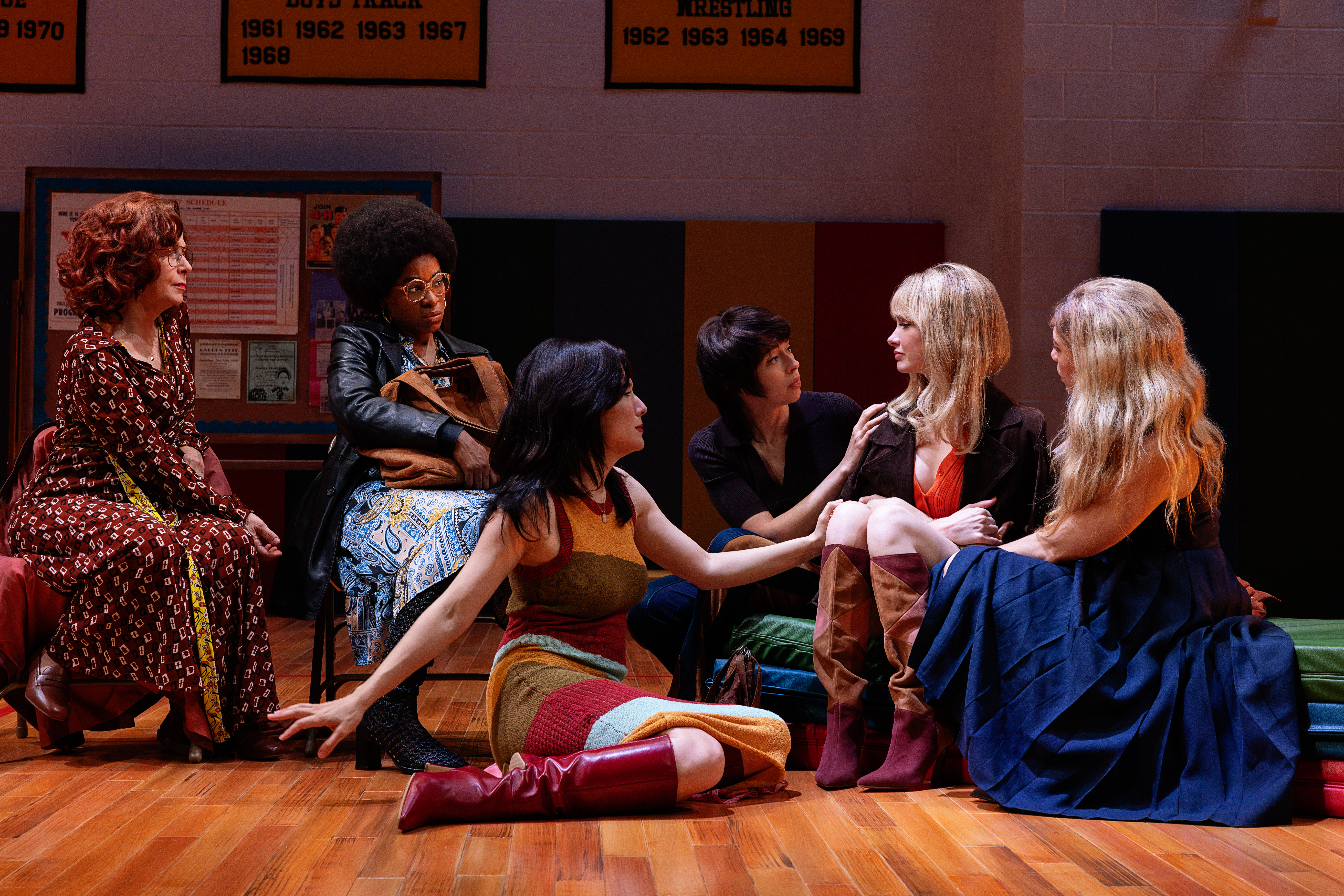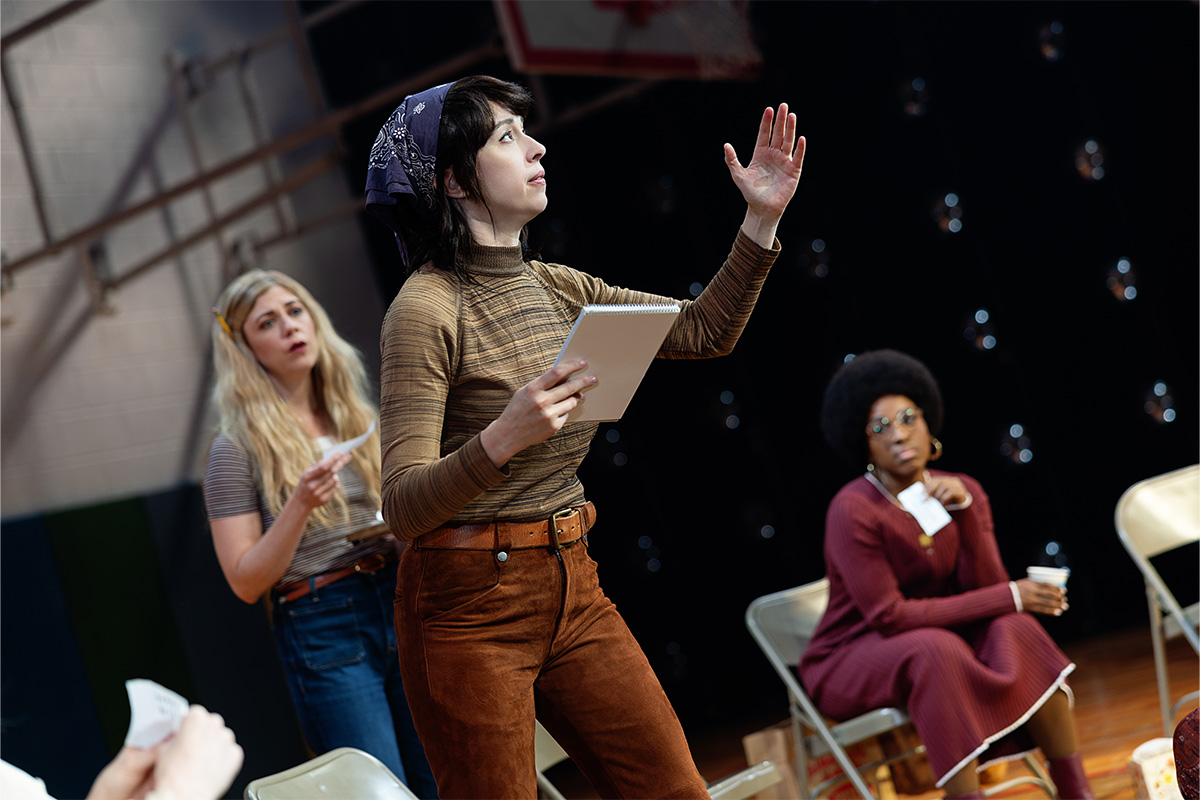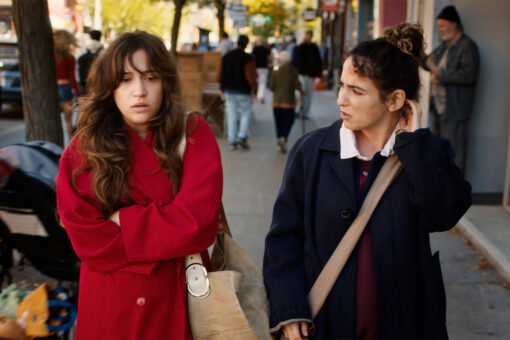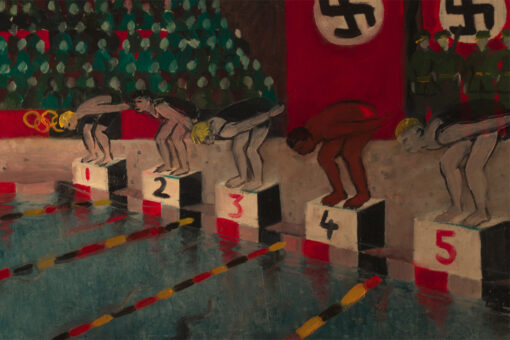The most badass feminist on Broadway is proudly and openly Jewish.
Her name is Susan and she is a character in Tony Award nominee Bess Wohl’s play “Liberation,” which is about a consciousness raising group in Ohio, set against the larger backdrop of the 1970s women’s liberation movement. After a successful off-Broadway run at Roundabout Theatre Company, the show recently transferred to the James Earl Jones Theatre on Broadway. Both times, Susan has been portrayed by Adina Verson (credits include the hit series “Only Murders in the Building,” and “Indecent,” their Broadway debut).
Susan is one of six members of the consciousness raising group, which explores the struggle for women’s rights. She is a punk and a radical with a pet bird and dreams of owning a motorcycle. From the moment she introduces herself, Susan’s Jewish identity is on full display.
She reveals her father sat shiva for her when she left home — as if she were dead — and then declares: “Women are human beings. If you don’t believe that, at this point, I don’t know how I can help you.”
The prominent inclusion of such a fierce Jewish character in the play was intentional.
“There’s such a deep history of Jewish activism in the women’s rights movement,” Wohl noted, citing Gloria Steinem, Bella Abzug and Shulamith Firestone. “I was thinking about the relationship between Judaism and social justice and the call to action that’s so rooted in the tradition.”
Firestone’s story in particular inspired the character of Susan. The author of “The Dialectic of Sex,” Firestone advocated for dismantling the patriarchy — beliefs shared by Susan in the play. Like Firestone, Susan was raised Orthodox and struggled with the strict gender norms of her community.
In the show, Susan shares a manifesto — she calls it a “womanifesto” — that comes to her in a dream. She hears God (whom she refers to as Hashem) speak about liberation through the voice of her mother. The dream illustrates how Judaism remains an important part of the lens through which she views the fight for liberation, even as she rejects facets of the religious traditions.
“The idea that she can reject the oppressive part of certain sects of Judaism and hold on to the liberation aspect of it is so beautiful,” Verson said of their character. To them, it’s also an opportunity for Susan to find empathy for her mother. In the dream, her mother had agency; she was connected to the divine, not a repressed eshet chayil.

The dynamic between mothers and daughters is a significant theme in “Liberation.” The story is based on Wohl’s own mother’s involvement in the women’s movement in the 1970s. Both Wohl and Verson have been reflecting upon their relationships with their daughters as they explore the world of the play.
Verson considers the elements of Judaism that they want to pass onto their 5-year-old and the type of Jewish education that they hope to provide. “This play has helped me realize that my Jewish education was very Holocaust-centric,” they shared. “I’m glad I learned about the Holocaust but that is not the central aspect of Judaism.” Instead, they are seeking out a more nuanced Jewish experience for their daughter that is “full of questions and antithesis” and integrated more fully into their daily life.
Although Wohl was not raised Jewish, she is raising her children Jewish. The family is currently preparing for her daughter’s upcoming bat mitzvah. Between play rehearsals and bat mitzvah prep, Wohl is thinking a lot about the power of women’s voices. When her daughter started drafting her d’var torah, Wohl told her that her voice was important, her perspective mattered.
“I wish it were not such a radical thing to say right now, but it still feels meaningful to empower young girls and hear from them,” Wohl observed.
“Liberation” raises questions about how far we’ve come since the days of the liberation movement and what the legacy is that those feminists left for today’s women. There’s an acknowledgement of the significance of what is passed down from mother to daughter, from generation to generation. In fact, when Verson was asked what they hope audiences take away from the show, their response had echoes of the same Talmud quote that inspired Shaina Taub when writing “Suffs,” another Broadway show about the fight for women’s rights.
“I hope people will learn how much sacrifice was put in by the women in that generation that they may not have lived to see,” said Verson. “If we can live our lives in a personally political way, we might not live to see the [changes], but somebody will.”



